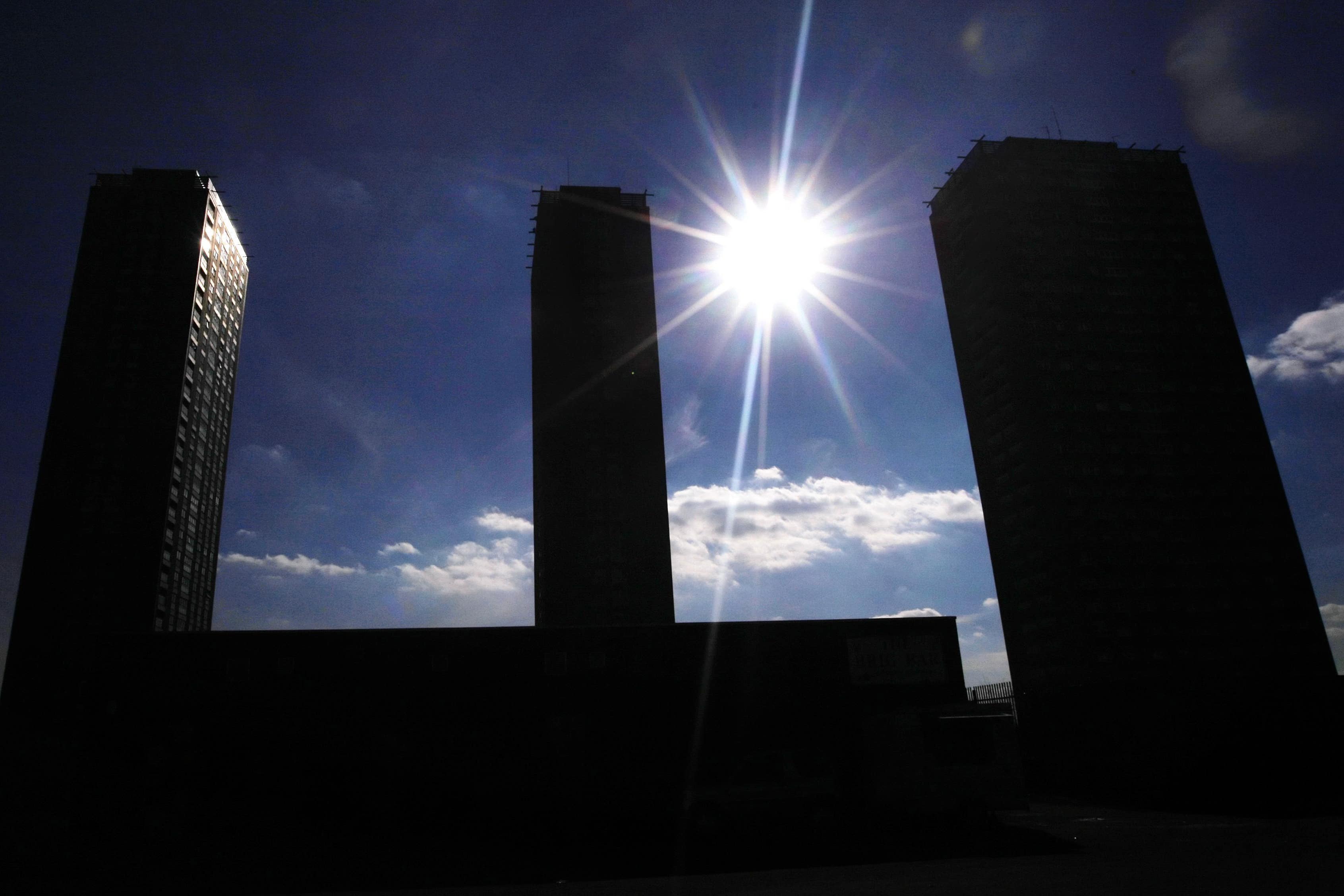A third of English homes are risk of overheating in the future, analysts say
Smaller, overcrowded or urban houses are more susceptible to heat and more likely to be inhabited by poorer families, the Resolution Foundation said.

Your support helps us to tell the story
From reproductive rights to climate change to Big Tech, The Independent is on the ground when the story is developing. Whether it's investigating the financials of Elon Musk's pro-Trump PAC or producing our latest documentary, 'The A Word', which shines a light on the American women fighting for reproductive rights, we know how important it is to parse out the facts from the messaging.
At such a critical moment in US history, we need reporters on the ground. Your donation allows us to keep sending journalists to speak to both sides of the story.
The Independent is trusted by Americans across the entire political spectrum. And unlike many other quality news outlets, we choose not to lock Americans out of our reporting and analysis with paywalls. We believe quality journalism should be available to everyone, paid for by those who can afford it.
Your support makes all the difference.Over a third of homes in England are at risk of overheating in future as climate change brings hotter summer temperatures, according to new research.
Flats and smaller or overcrowded houses, especially those in cities, are most vulnerable to overheating – defined as exceeding 26C for more than 3 per cent of occupied hours, the Resolution Foundation said.
This means it is the country’s poorest families that will face the greatest risk from higher temperatures in future.
As well as disrupting sleep, heat can kill those with cardiovascular or respiratory illnesses or who are over 75, as their bodies can struggle to regulate temperature efficiently.
In a new report called It’s Getting Hot In Here, the think tank’s analysts said more than half of the poorest families live in households at high risk of overheating in future compared with 18 per cent of the richest.
They used Government data to identify which type of homes would be most at risk, which includes those that are smaller, overcrowded or in urban areas where tarmac and concrete absorbs heat and re-emits it at night, whereas trees or bodies of water create a cooling effect.
One of the main ways that climate change will impact the UK will be through the heightened risk of overheating, in both our homes and our workplaces
Known as the heat island effect, studies have found there to be several degrees of difference between cities and their surrounding areas.
There can also be large temperature differences between homes that are neighbouring parks and those that are not.
One recent Europe-wide study estimated that last summer’s searing heat caused more than 3,000 deaths in the UK.
Jonathan Marshall, senior economist at the Resolution Foundation, said: “One of the main ways that climate change will impact the UK will be through the heightened risk of overheating, in both our homes and our workplaces.
“The risks these higher temperatures bring will not impact all households and workers equally, however, with lower-income households, renters, ethnic minority households and families with young residents most at risk, alongside people who work outdoors or in confined spaces who are concerningly older than the average worker.”
The group’s analysis also found there to be inequalities in access to cool spaces at work, with just under a quarter of workers in physical roles such as construction, agriculture or manufacturing, or working in confined spaces, all of which leave people more susceptible to overheating.
Wealthier people are less likely to work in these sectors, the analysts said, while for office workers, those in more deprived areas are less likely to work in an office with air conditioning.
Their analysis, which looked at data for leased spaces, suggests this difference occurs even when workers are in the same region.
In London for example, 22 per cent of offices in the most deprived areas have air conditioning whereas this rises to 40% in the least deprived, according to the analysis.
The Resolution Foundation wants property owners and the Government to significantly invest in making buildings more resilient to heat.
They said renters could be better protected if the Decent Homes Standard was expanded to the private sector and that it should include summer heat as well as winter cold when compelling homeowners to ensure the thermal comfort of their tenants.
Mr Marshall said: “Alongside their goal of reaching net zero without unfairly burdening lower-income households, policymakers must also ensure that people are protected from the dangers of climate change, including soaring summer temperatures.”
The Government has been contacted for comment.